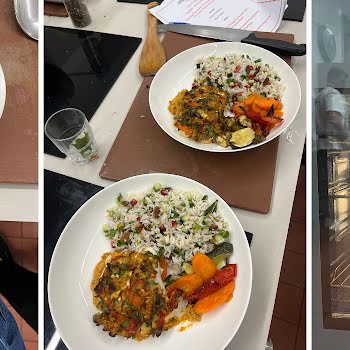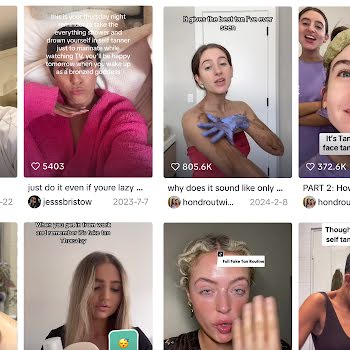Sponsored
I’m single and I’m thinking about kids, what are my options?
Sponsored By

By Lauren Heskin
30th Sep 2024
30th Sep 2024
Sponsored By

From fertility testing to embryo banking, we asked an expert to guide us through the options available when it comes to our fertility, including options, costs, time off work and understanding results.
Whether you’re in your twenties and just starting to consider whether you want to have children at some stage, or you’re in your forties and wondering if it is ever going to happen for you, fertility can be a bit of an unknown.
We spoke to Dr Alexandra Toth, consultant at Waterstone Clinic, about what women at different stages of their lives should consider about their fertility. The first thing Dr Toth points out is that, while it is very helpful to think in terms of your age, fertility is individual and at the same time, readiness is individual: you might be 25 and desperate for children or you might be 40 and just beginning to wonder if you would like to be a parent.
We discussed some of the options and how they’re available to all groups. The most important thing is to discuss your results and your plans with a specialist at a fertility clinic to allow you to devise a plan that works for your timeline and your body.
In your twenties
“There is a tendency to only think about fertility once you’re thinking about trying for a family, but it should start far before that,” suggests Dr Toth, not just for your ability to get pregnant, but also your overall health. “In your twenties, you might be concentrating on not getting pregnant, but fertility testing gives you information about your reproductive health and you can use it to plan, keep your options open, and make decisions about your future.”
Fertility Check
A fertility check is very straightforward and simple, starting with a blood test called the AMH test. This test explores your ovarian reserve, which is the number of eggs remaining in your ovaries. We are born with all the eggs we’ll ever have and the amount of eggs we have decreases as we age. The level of AMH (Anti-Müllerian Hormone) we have mirrors this, so it can give a good indication of the number of eggs in your ovaries and flag any fertility issues you might have. Put together with a fertility-focused ultrasound scan, which you might opt for to get a fuller picture, these simple tests can take the mystery out of your fertility future.
Why Get A Check? “Even if you’re not thinking of a family right now, knowledge is power in fertility: once you know where you stand, you have choices, and the big benefit is that it can avoid disappointment in the future” explains Dr Toth, “We don’t “wait and see” with other areas of our lives that we deem important, so fertility should be no different.”
The reality is that one in six couples struggle to conceive, so exploring your fertility in your twenties can flag any reproductive health issues early, or give reassurance. It might also be the start of creating your fertility backup plans to give you the best chance of building your family in the future, if you want to have one.
Should I go through my GP or look to a fertility clinic? Start where you feel most comfortable, and if that’s by your GP’s desk, then absolutely. Equally, you can get in touch with a fertility clinic and their team will look after you from start to finish. Fertility is a specialist topic, so if you’re looking for a deeper understanding with a focus on forward planning, you’ll need to visit a specialist clinic.
How long does a fertility check take? Will I need to take time off work? The AMH test is a quick blood test, so it’s a very quick 10-minute appointment. If you decide to see one of the specialists and have a scan, that appointment takes about a half-hour, so you might go to work late or finish early on the day you have that appointment.
We don’t “wait and see” with other areas of our life that we deem important, so fertility should be no different.
What is the cost? Fertility testing is affordable and accessible. An AMH blood test is €125. If you would like to have a full fertility assessment with a consultant, it is €175 for the consultation and €120 for the specialist fertility-focused ultrasound scan. You will get a wealth of information about your fertility and can discuss all the options and plans with the consultant.
What kind of results might you get and what do they mean? “Your AMH results will be interpreted alongside your age and your ultrasound scan. We look to see if you have an average, high or low number of eggs for your age” explains Dr Toth. “A high AMH could point to a condition such as PCOS, and a low AMH could mean your window of opportunity to have children may be shorter than average. We put all the results together to give you advice and recommendations.”
Fertility issues are very common and even if you don’t want a family right now, being proactive about your fertility can make all the difference when you are ready. Put together, these tests give a picture of your overall current fertility potential. They can determine if fertility treatment might be necessary if you are trying, and which options would offer you the best chance of success.
In your thirties
Moving into your thirties, plans become even more important. Female fertility starts to decline after 30, and the decline gets more rapid after 35. Your thirties is typically the period when most women begin thinking seriously about their fertility, and there’s good reason for that explains Dr Toth. “On average, up to 90% of the eggs in your ovaries are gone by the time you turn 37: it makes sense to preserve them. As your egg quantity and the quality of them diminishes, so do your chances of conceiving.”
Your thirties is the time to start asking yourself: Do I want a family? Do I want a family with or without a partner? How many children would I like? “Understanding your fertility is the first step and knowing your options is the second,” explains Dr Toth. “If you want to wait, but not put your family plans at risk, you could explore fertility preservation, such as egg freezing. It’s really worth having the discussion with a specialist.”
Egg Freezing
Freezing eggs in your early or mid-thirties allows you to preserve some of your younger, healthier eggs as a backup plan which could protect your chance of having a baby in the future. “The treatment has the same steps as an IVF treatment to collect eggs from the ovaries,” explains Dr Toth. “The eggs are then frozen and stored, which preserves their potential and they age no further”.
What are the benefits? Younger eggs have more potential to lead to a successful pregnancy. Freezing your eggs means you keep the potential those eggs had at that age, so in the future, if you do struggle to conceive, your younger eggs will be available to you to give you a very good chance of having a baby.
How long does egg freezing take? Are there lots of appointments? The egg-freezing process isn’t long, the treatment will be complete in the space of one natural menstrual cycle.
Once you’re ready to start treatment, the first appointment will be your baseline scan when your period arrives which is a 30-minute appointment. At this appointment, you have a scan to check that your body is ready to start. The fertility nurse specialist will give you instructions on how to take your medication at home. This does include needles and the idea can make people nervous, but these injections are very small like diabetic insulin pens, and are very simple to administer.
Once you start taking your medication, you’ll have two or three ultrasound scans (which take about 15 minutes) to track the development of the follicles in your ovaries. The fertility nurse will let you know when you’re ready for your egg collection procedure.
The egg collection procedure is the only day you’ll need off work (if it does fall on a work day). It can help to discuss your plans with your manager at work, so they’re aware of you popping out for a few appointments and a day off at short notice. Most employers are really supportive.
What is the cost? The cost of egg freezing treatment at Waterstone Clinic is €2,950 and there is a monthly fee of €25 to store your eggs. On average, up to 90% of the eggs in your ovaries are gone by the time you turn 37.
What kind of results might you get and what do they mean? “When you decide to freeze your eggs, you want to make sure that you freeze enough eggs,” explains Dr Toth. “I always aim to freeze twenty eggs because if you are in your thirties, that will give you up to a 90% chance of having a baby from those eggs”. How the eggs are frozen is also important: the team at Waterstone Clinic use the gold standard open-system freezing as it delivers better success for eggs. This is a highly specialised procedure and Waterstone Clinic was the first in Ireland to be licensed to do it. “We can then store the eggs in our laboratories at a low temperature (-196°C) until you decide to use them”.
How do you use frozen eggs if you want to get pregnant in the future? In the future, if you need to use the eggs, the process is very straightforward. “The process is simple: the eggs will be thawed, assessed and inseminated with sperm (from a partner or a donor) and a resulting embryo will be transferred to your uterus”. Two weeks later, you can take a pregnancy test.
In your forties
Having children in your forties is not an impossibility, but can definitely be helped by some forward planning. Having a partner isn’t a necessity either, as more and more women use donor sperm to create their families. Another option to futureproof your chances is to freeze embryos and bank them for future use.
Embryo Banking
Embryo freezing or “embryo banking” is another form of fertility preservation. The process is the same as an IVF cycle, but when the embryos are created, they are frozen and stored for the future. “Freezing embryos is a very robust method of fertility preservation, and many patients have their entire family from one round of IVF because embryo freezing is so successful,” explains Dr Toth.
How is it different to egg freezing? The only difference between embryo freezing and egg freezing is the additional step of adding sperm to create embryos before the freezing process.
What are the benefits? The major benefit of embryo freezing is that the frozen embryos withstand the freezing process very well and they retain their original success potential.
If I don’t have a partner, how do I find a sperm donor? “If you are coming to the clinic as a single woman, we have a dedicated donor sperm team to work with you. We import donor sperm from international banks and we will guide you on how to use the databases to choose your donor”. Once you choose your donor, the sperm is imported to the clinic and you can begin your treatment cycle.
How long does embryo freezing take? Will I need to take time off work? Similar to egg freezing, the treatment process isn’t long, just a few weeks. It can help to discuss your plans with your manager at work, so they’ll be aware of you popping out for a few appointments.
The major benefit of embryo freezing is that the frozen embryos retain their original success potential: the younger you are when you create them, the better.
What kind of results might you get and what do they mean? In general, freezing between two to four embryos gives you a good chance of building your family. The more embryos you have, the more you have the more chances of pregnancy you have.
If I decide to get pregnant and wish to use the embryos, what does that process look like? The process of using the embryos is very straightforward. You take some medication to prepare the lining of your womb. The embryos are thawed and assessed and then transferred to your uterus in a very simple embryo transfer procedure. Two weeks later, you can take a pregnancy test.
What’s your overall advice? “Whether you’re in your twenties, thirties or forties, it’s always a good idea to have a fertility check so you have the information about your own body. If you are thinking about embarking on your fertility journey, or are already on it, I wish you the most heartfelt luck.”
We hope you can approach your fertility journey without any apprehension, safe in the care of the experts.
The experts at Waterstone Clinic are always available to offer advice at 0818 333 310 or advice@waterstoneclinic.ie. For more, head to our IMAGE Talks Fertility page.























